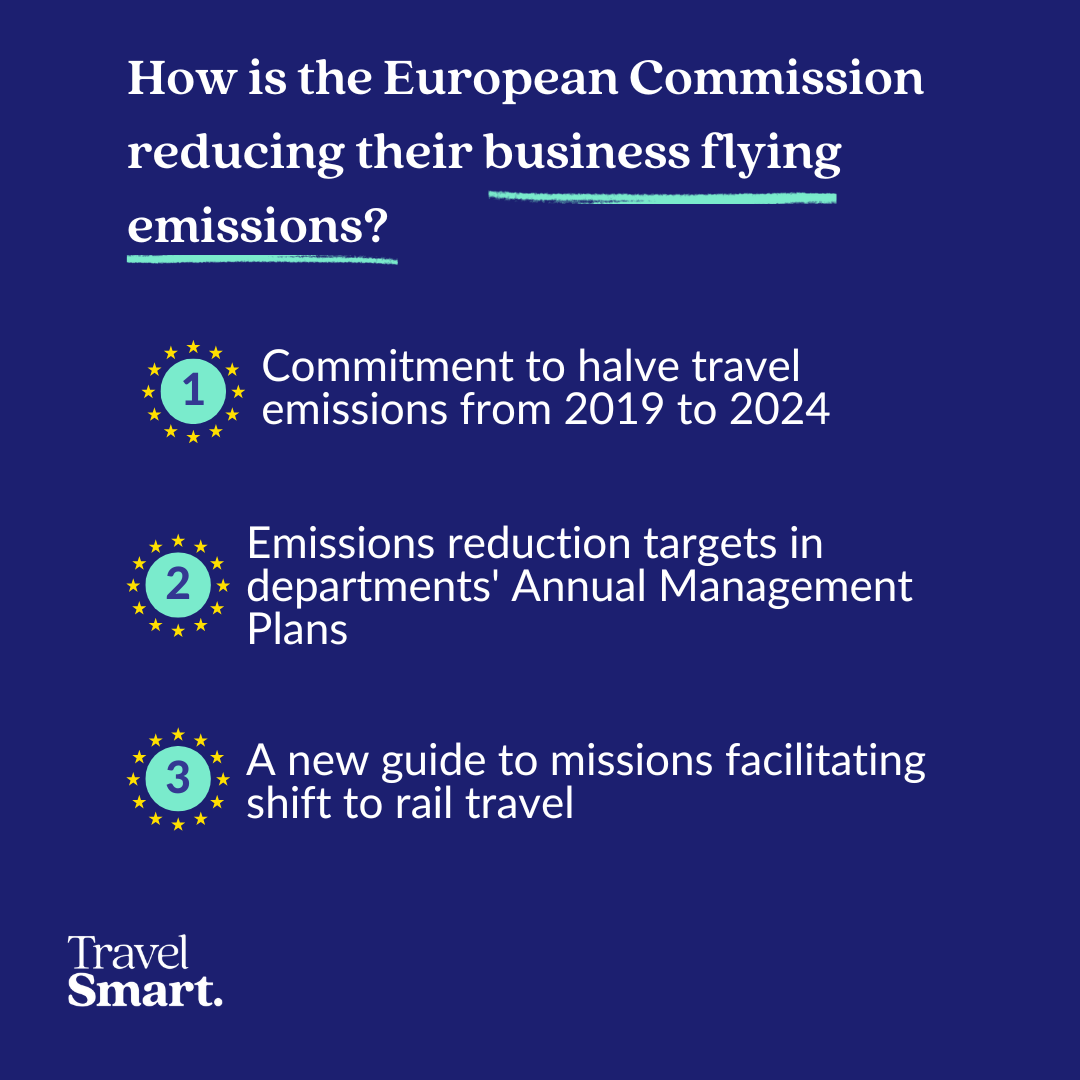The European Commission has made a leading commitment to reduce emissions from staff business trips by 50% by 2024, compared to 2019 (and similarly for travel by external experts), as part of its 2030 emissions reduction target[1]. This is an ambitious objective that matches the goal set by the Travel Smart Campaign to maintain business air travel emissions below 50% of 2019 levels, in order to keep aviation on a 1.5°C-compatible trajectory.
The Commission’s annual Environmental Statement 2023, released in April for the period 2022, reveals a big drop in emissions from flying by staff (-42%) as well as by external experts (-61%), between 2019 and 2022. The data accounts for the full impacts of flying including both CO2 emissions, as well as non-CO2 greenhouse gas emissions notably from plane contrails.
A number of Commission services have included quantitative emissions reduction targets in their Annual Management Plans, while DG Budget committed to year on year reduction of the budget for professional travel. A new guide to missions was developed in 2023, facilitating a shift to rail by allowing train travel in defined circumstances when more costly than flying.
European Commission business air travel emissions
| 2019 (tCO2e) | 2022 (tCO2e) | 2022 vs. 2019 reduction (%) | |
| Staff air travel | 40,407 | 23,408 | -42% |
| External expert air travel | 30,919 | 12,048 | -61% |
In 2022 just under half of some of the world’s biggest corporate flyers in the Travel Smart Emissions Tracker sample – 115 out of 235 – were able to keep their emissions levels low, with reductions of 50% or more as compared to 2019. Emerging data for 2023 confirms that leading companies including Swiss Re, AstraZeneca, EY and IKEA have maintained this momentum.
However for many other top corporate flyers, emissions are creeping back up again. The Commission’s experience shows that committing to keep business travel emissions to 50% of 2019 levels, and working to make real progress, is both necessary and feasible. Legislators now need to help companies achieve this goal. The next European Commission should seize the momentum to set mandates for companies to halve business travel emissions, and to advance measures to accelerate the transformational changes underway towards the mobility of the future: purposeful business travel.
Notes to editor
[1] For more details, see the Travel Smart campaign’s Latest on business travel policy developments.
